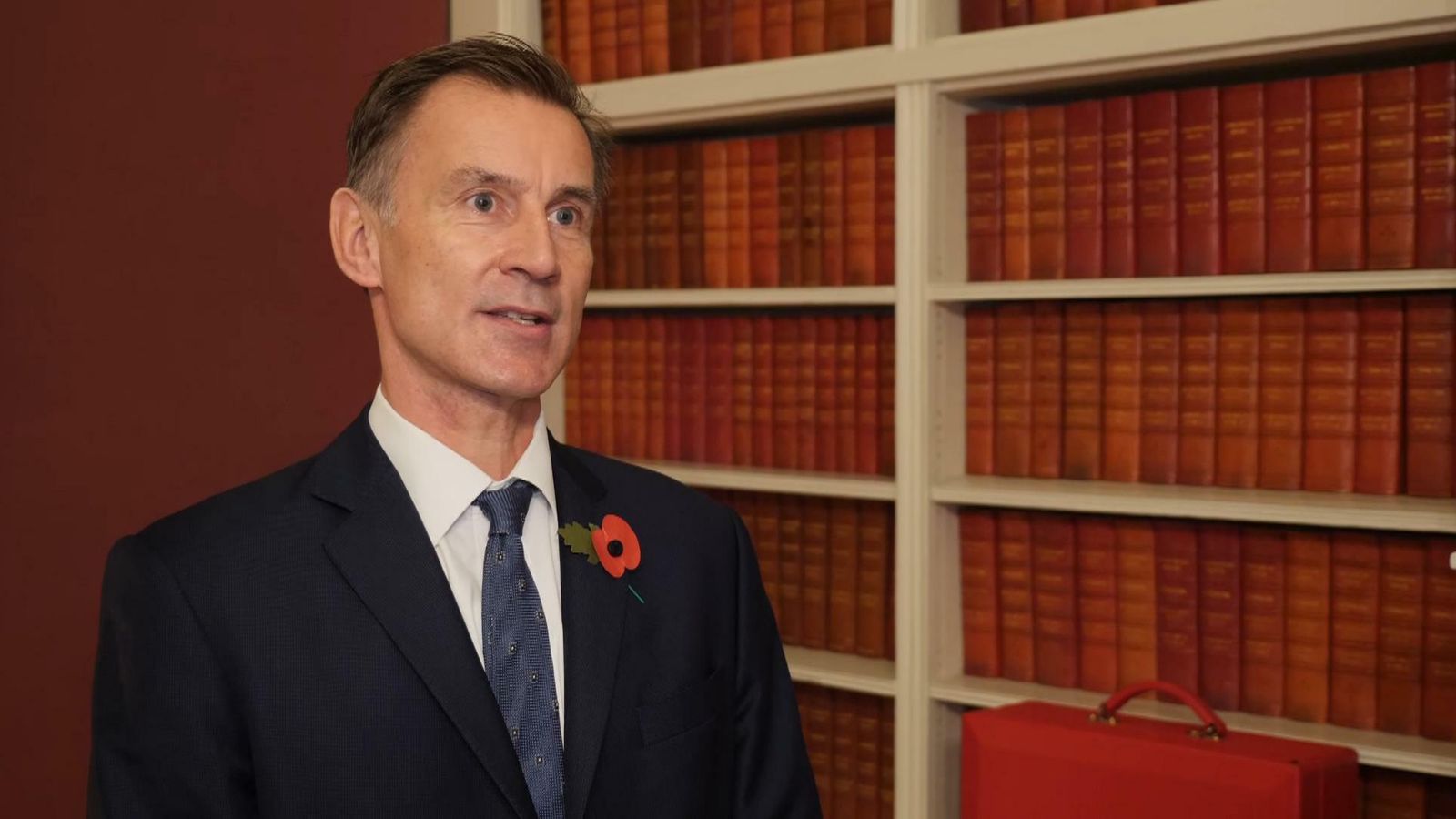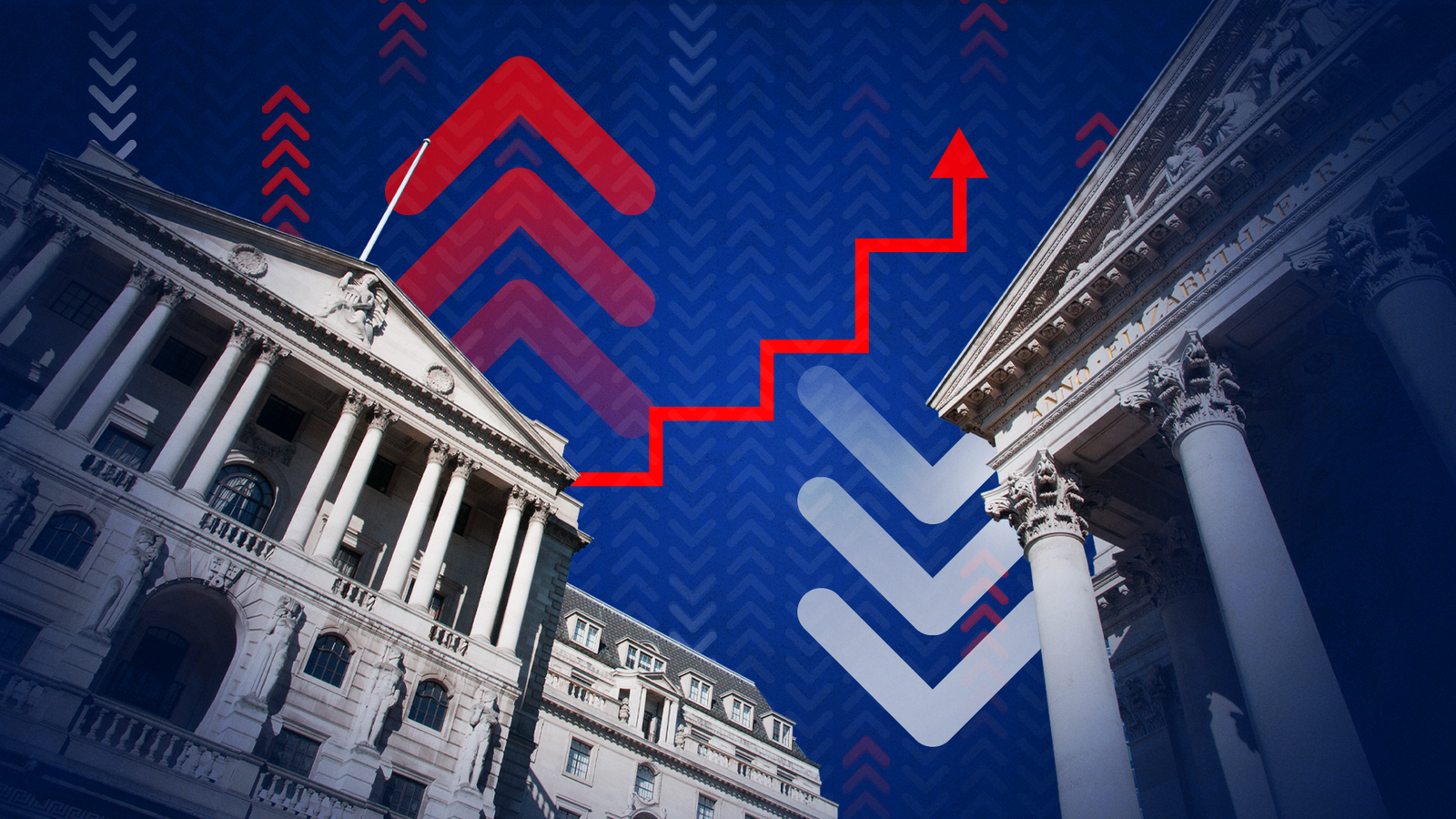Chancellor Jeremy Hunt has hinted he could let local authorities increase council tax as he looks to fill a £60bn fiscal black hole.
Mr Hunt said that in his autumn statement on Thursday “we’ll be asking people who have more to contribute even more” and this “will be reflected in our decisions on council tax”.
The admission followed a question in the Commons from Labour’s Chris Bryant, who said schools and local authorities “are in real fear of going bust” due to rising energy bills and food inflation.
Politics live: Raab allies hit back at ‘mudslinging’
He warned the chancellor against “pushing this on council tax”, saying: “Many of the poorest areas in the country have the highest level of need and the fewest number of people who can afford to make additional contributions, so that will be entirely counterproductive and the ratchet effect could actually make local authorities even more unsustainable?”
But Mr Hunt replied: “I do hear what the right honourable gentleman says and it is going to be a very difficult announcement on Thursday because we are going to be asking everyone to contribute more.
“But we’ll be asking people who have more to contribute even more. And that will be reflected in our decisions on council tax and every other tax as well.”
The autumn statement | Chancellor Jeremy Hunt and Simon Clarke
After Kwasi Kwarteng’s disastrous mini-budget, there is no magic cure
Jeremy Hunt says everyone will have to pay higher taxes – but richest will make larger sacrifices
The warning prompted Speaker Sir Lindsay Hoyle to joke: “You might want to save something for Thursday.”
The government has not confirmed what measures will be in the autumn statement later this week – but there has been a constant stream of measures reportedly being considered.
This “pitch rolling” helps markets get an idea of what is coming down the road and avoids spooking traders.
When Liz Truss and Kwasi Kwarteng made several surprise announcements in their mini-budget in September, it contributed to the financial chaos which saw the Bank of England forced to intervene to prevent pension funds from collapsing.
Please use Chrome browser for a more accessible video player
Both the chancellor and prime minister have been clear that tax rises and spending cuts are likely to be announced on Thursday.
Analysis released on Monday by the independent Resolution Foundation think tank found Ms Truss’s mini-budget cost the UK £30bn, doubling the sum the Treasury says will have to be raised.
One of the measures reportedly being considered is to give local authorities the power to raise council taxes above 2.99% each year without a referendum, in a bid to ease pressures on social care.
This may put the party on a collision course with Tory MPs, as the Conservative’s manifesto promised that “local people will continue to have the final say on council tax”.
Under the present rules councils that are responsible for social care can raise bills by a maximum of 2.99% plus a 1% levy for social care each year.
According to The Daily Telegraph, the new threshold could be 5%, which would see households in band D paying up to £100 extra.
Read More:
How could PM and chancellor reduce ‘£60bn financial black hole’?
Other decisions reportedly under consideration include keeping the rise in National Insurance that Liz Truss scrapped, lowering the threshold for those who will pay the highest rate of income tax, getting rid of the pensions triple lock and not raising benefits in line with inflation.
Mr Hunt is also expected to make the support plan for energy bills less generous from April, instead switching to more targeted measures in order to save the Treasury billions.
Please use Chrome browser for a more accessible video player
He is also considering increasing the windfall tax on oil and gas giants from 25% to 35% while also expanding the levy to electricity generators.
No final decisions have been made.
But earlier, Prime minister Rishi Sunak said “difficult decisions” are required to “fix” the damage caused by his predecessor, though he refused to apologise for her mistakes.
And on Sunday, Mr Hunt warned that “sacrifices” are required across the board to get the economy back on track, telling Sky News: “We’re all going to be paying a bit more tax, I’m afraid”.








